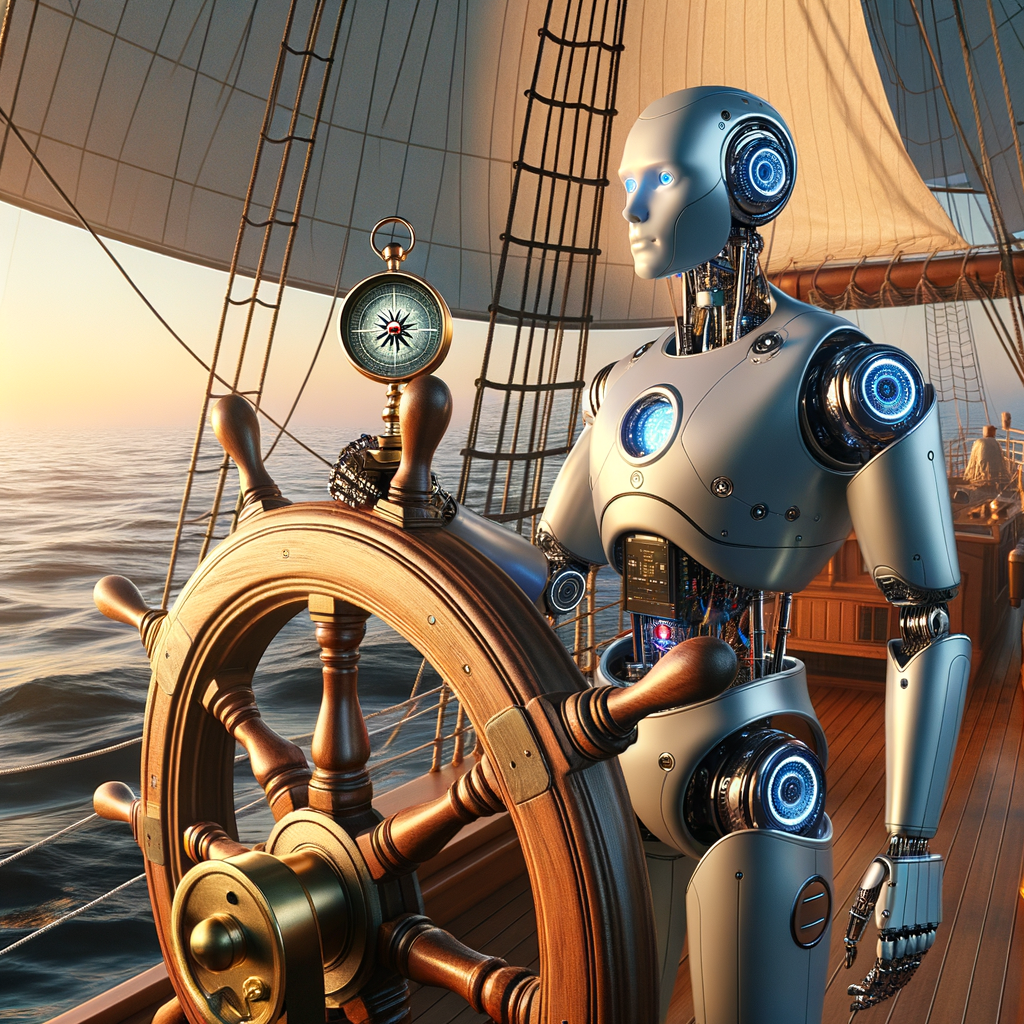Greetings, tech enthusiasts! Let’s embark on a fascinating journey into the world of Artificial Intelligence, an exciting technological frontier that is growing and evolving at a rapid pace. Amidst all the hype and exhilaration, one critical aspect that sometimes slips under the radar is the ethical considerations of AI deployment. Yes, we’re talking about AI’s moral compass! Just like how humans need a sense of right and wrong to navigate through life, AI too needs some form of ethical guidance to ensure its decisions and actions line up with our collective values. Ready to dive in? Let’s set sail!
Steering the Ship: Guiding AI with Ethical Values!
Artificial Intelligence, though machine-based, operates in the human world and is increasingly making decisions that affect our lives. Like a ship on the vast ocean, it needs a captain to guide its course – in this case, ethical values. Imagine the AI is the ship, algorithms are the gears, and data the fuel. But, what’s steering it all? That’s where ethics come in, setting the course and making sure we don’t hit any icebergs!
To ensure the AI’s decisions are ethically sound, developers and programmers embed codes of conduct into the AI system. These codes act like values that shape an individual’s moral compass. But the question arises, whose ethics do we use? As our world is diverse, so are our ethical understandings. Hence, it’s crucial to adopt a universal or globally agreed-upon set of ethics. This is a mammoth task but absolutely vital to ensure we don’t end up with a rogue AI on our hands!
Compass Check: How AI Learns to Tell Right from Wrong!
Just like humans learn the difference between right and wrong, AI systems too need to be taught. How do they learn, you wonder? The answer lies in machine learning and training datasets. AI systems learn by example, processing vast amounts of data and identifying patterns. By showing the AI what’s considered right and wrong, it learns to make decisions accordingly.
However, it’s important to remember that AI is only as good as the data it’s trained on. If the data is biased, the AI will likely make biased decisions. A big part of navigating ethics in AI deployment is ensuring the data used to train the AI is fair and unbiased. It’s like giving the AI a well-calibrated compass and an accurate map, ensuring it can reliably distinguish between right and wrong!
So there you have it, folks! The fascinating journey of steering the AI ship with a strong ethical compass. It’s no easy task, but it’s an absolute necessity as AI continues to play an increasingly influential role in our lives. The journey is filled with challenges, but with care and attention, we can ensure that AI systems align with our collective ethical values, making decisions that are fair, just, and beneficial for all. Here’s to the exciting future of ethical AI deployment, helping us navigate through life in the digital age!
#EthicalAI, #AIEthics, #TechEthics, #ArtificialIntelligence


